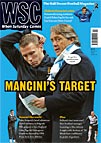 In an effort to control crowd trouble the Argentine authorities have embarked on a unique experiment. Sam Kelly explains
In an effort to control crowd trouble the Argentine authorities have embarked on a unique experiment. Sam Kelly explains
At this summer’s World Cup, police forces in Johannesburg and Polokwane will be more sorely tested than most should Argentine plans to mobilise supporters behind the national team go ahead. In other countries, fan groups find out which tickets they’ve secured and governments sift databases to ensure those with records of violence can’t travel. In Argentina, meanwhile, a non-governmental organisation has been talking to some of the country’s most prominent barra bravas in a bid to eliminate violence from domestic football. Their masterplan? In essence, to help the best-behaved hooligans secure funding to travel to South Africa.
The group, calling itself Hinchadas Unidas Argentinas (Argentine Supporters United), is fronted by Marcelo Mallo, who works under the auspices of Rudy Ugor Ulloa for a leftist-Peronist group called Compromiso K. Mallo introduced the head of the cabinet, Aníbal Fernández, to the barras some months ago and a pact was signed.
Only rough details came out in the press around a month later, but it appears inspired by a previous NGO, Nuevo Horizonte, which in 2007 sent a group of 23 Independiente barras to the Copa América in Venezuela. Translating barra as hooligan here wouldn’t quite fit; the head of Independiente’s gang, Pablo Álvarez, claims to have decided a few years ago that he wants to encourage a peaceful plan of action for the country’s barras. In another Nuevo Horizonte experiment, Independiente’s own group actually provided the security in the away end for a derby against Racing last season.
The deal on the table now is simple – barras provide support to the NGO both inside the stadium and on the streets. Up to 250 places are currently up for grabs if gangs keep stadiums free of violence during the Torneo Clausura. Should it go well, another plane might be chartered and South Africa’s stadiums could play host to 500 Argentine hooligans.
Mallo explained, taking as an example the fans of a club whose hooligans I wrote about for WSC earlier this season: “Chacarita [Juniors] fans are spread over 21 electoral areas. If we turn them into people who transmit ideas to their communities, tomorrow they’ll be tools at the government’s disposition.” He went on to openly admit that the exercise was geared largely towards ensuring future votes for the present government.
That seems strange for a “non-governmental” organisation until one looks more closely at the name, Compromiso K. The “K” stands for “Kirchner” and refers to the neo-Peronist former president Néstor Kirchner, who was succeeded in 2007 by current president Cristina Fernández. Fernández is Néstor Kirchner’s wife. So while the group actually signing this pact with the devil claim to be an NGO, the impetus almost certainly comes from rather higher up.
Months previously the government had encouraged the Argentine FA (AFA) to tear up a contract that had been paid until 2014, to sign a lucrative deal with the state TV company at the start of the present season. It was clear vote-garnering and this time around those making the moves are at least being more honest about their motivation. Their self-delusion is still astonishing, though. “We want to work towards getting rid of violence in football, why shouldn’t that come about through politicising the fanbase?” Mallo asked the press. In so saying, he overlooks spectacularly and seemingly willingly the fact that politicising any group rarely makes them less violent. Having lived his 46 years in Argentina he ought to have noticed that.
The pact has attracted predictably strong opposition. Not only from those who oppose the government in congress, but also from the press and members of the AFA’s board who oppose the presidency of that organisation by FIFA vice-president Julio Grondona. “When you’re buying people’s wills, everything becomes worse,” said Raúl Gámez, former Vélez Sársfield president. “This will provoke fights, because now they’ll be fighting to gain a ticket to the World Cup.”
There are already arguments about allocations from the gangs themselves. Among those left out of the deal are the barras of River Plate and Boca Juniors – both of whom financed their own journeys to Germany 2006, where Boca’s and Independiente’s groups clashed. As the two most widely supported clubs with the most influential gangs, they’ll want something, at least. For now, the Hinchadas Unidas Argentinas banners are out in force on the country’s terraces. If you spot them in South Africa, spare a thought for the forces who have to police them.
From WSC 276 February 2010